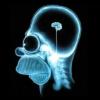Actually, I'm thinking of prozac:
http://www.nytimes.c...len-prozac.html
http://www.drugs.com...de-effects.html
http://mistyhorizon2...uoxetine-Prozac
I'm not talking about loss-of-life, I'm talking about loss-of-clarity and fullness to life.
It scrambles your memory, but your brain doesn't care. There's a whole host of side-effects to go with it. Sure - not everyone suffers them as badly as others.
You'll think it's all peachy, even though everyone else around you can see how broken your life is - this is speaking as someone who has had relatives go on and off prozac. The effect is substantial.
If you're looking for neurogenesis, try one of the other options that doesn't potentially affect so many other facets of your life. There are some very, very effective alternatives listed on here.
Here's a "fullness to life" counterargument for you:
I take Prozac along with a couple other medications because of a type of neurological dysfunction I have. The neurogenesis aspect has saved my life. Without it, my brain function deteriorates. I originally went off it because I was wary of the side effects, too, and it was one of the biggest mistakes I've ever made. It was only when I got back on the Prozac and my dad and my neurologist did some research that they discovered the neurogenesis aspect that meds like Cymbalta don't have (a miracle drug, but not for neurogenesis).
I live what I consider to be a very fulfilling life, and as long as I'm on Prozac, I've had no loss of clarity. I'm a senior in college, an archer, a lifeguard, a swim instructor, and I participate in every cool extracurricular program I can. Because last semester was the semester I went off the Prozac, my GPA dropped from a 3.34 to a 3.16, but I still qualified for and will soon receive a Merit Bursary for academic achievement. All while on Prozac.
Prozac isn't the only med that saved me (first place goes to Lamictal), but without it - as proven last semester - I would be an absolute wreck. So forgive me if I strongly disagree with your assessment of the medication - as someone mentioned, it is one of the most prescribed medicines currently in existence, so it can't be THAT bad - and believe me when I say my brain "cares."
However, I'm advocating brand-name Prozac. Were the people you watched go on and off Prozac on brand name or generic fluoxetine? Generic meds can have between a 5% and 20% difference from the dosage they're supposed to have. I was on generic for awhile until I got them from a different company and later discovered - after suffering flu-like effects and mood swings - that some generic fluoxetine is produced in India and has God-knows-what in it. Stick to brand unless you know where the generic is made and, if you can find out, the possible dosage inaccuracy.




















































